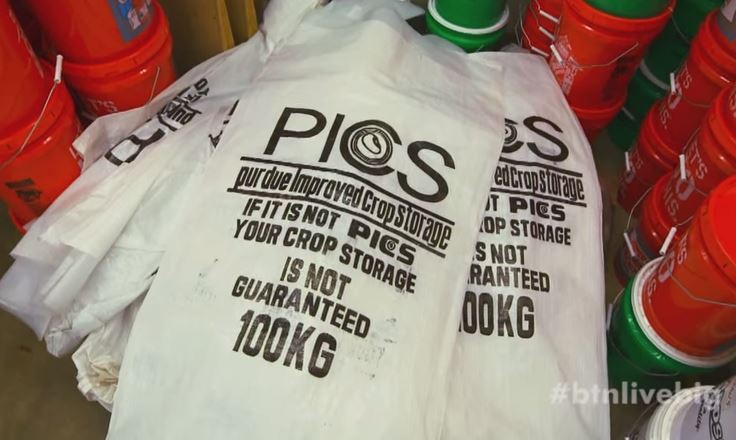BTN.com staff, December 5, 2014

During football and basketball games, BTN LiveBIG will spotlight notable examples of research, innovation and community service from around the conference. In-Game stories will provide more background on these features, and the opportunity to view the videos again.
[btn-post-package]Hunger is a problem all over the world, but it?s not always due to a lack of water or arable land. In many areas, such remote parts of Africa, if seeds aren?t preserved for the next growing season, it can mean thousands of people will starve later on, even after a successful harvest.
Over the last few years, researchers at Purdue University have been working on a remedy to the basic struggle to store food - and seeds in particular. The Purdue Improved Crop Storage (PICS) project was established to create special bags that keep small pests and contaminants out of stockpiled crops, such as maize, sorghum, wheat, rice, peanuts, common beans, pigeon peas and bambara groundnut.
?Farmers in Cameroon were trying all kinds of different methods, some of which were traditional, such as mixing the grain with sand or ash from their fireplaces and storing it all packed together,? said Larry Murdock, professor of entomology at Purdue University. ?In many cases, they were using insecticides, some of which they shouldn?t have been using on food materials.
?We realized that it was very important to understand how people in northern Cameroon saw the problem,? he continued. ?We thought that by learning from the people we would be better able to create some candidate technologies that they might be able to accept. Our approach was to create [a solution] collaboratively with our Cameroonian colleagues ? that we could then test in Cameroon to see if they worked under the conditions there.?
PICS bags are being evaluated to determine whether they maintain the viability of seeds for planting and if they minimize mold growth and accumulation of mycotoxins. The team at Purdue is also working to make them economically feasible for farmers in countries like Cameroon, which will hopefully lead to widespread adoption - and better crop yields everywhere, year after year.
Watch the one-minute video above to learn more about the impact of Purdue?s PICS program.







